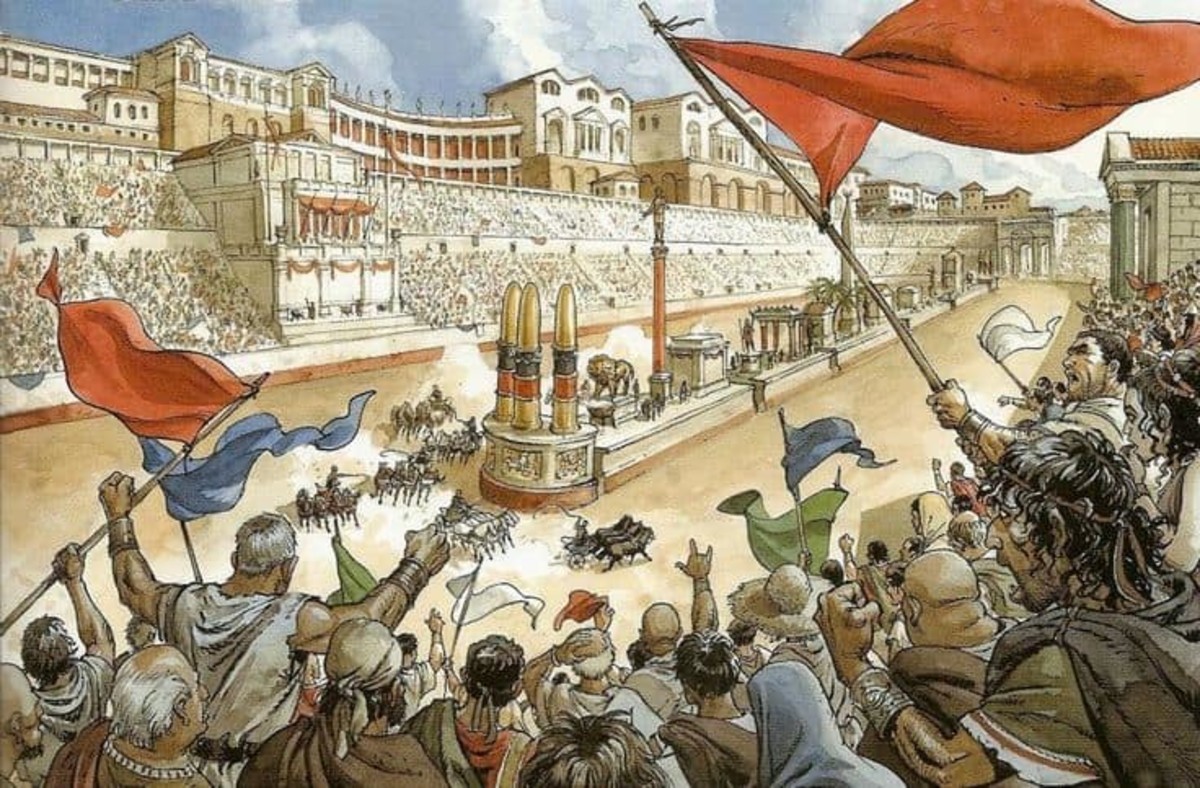

Ludi ranged in duration and scope from one-day or even half-day events to spectacular multi-venue celebrations held over several days, with religious ceremonies and public feasts, horse and chariot racing, athletics, plays and recitals, beast-hunts and gladiator fights. In Roman tradition, the earliest triumphal ludi at the Circus were vowed by Tarquin the Proud to Jupiter in the late Regal era for his victory over Pometia. Others might be given to fulfill a religious vow, such as the games in celebration of a triumph. Most were held annually or at annual intervals on the Roman calendar. Ludi were sponsored by leading Romans or the Roman state for the benefit of the Roman people ( populus Romanus) and gods. The Circus was Rome’s largest venue for ludi, public games connected to Roman religious festivals.

Map of Rome during Antiquity / Wikimedia Commons


 0 kommentar(er)
0 kommentar(er)
